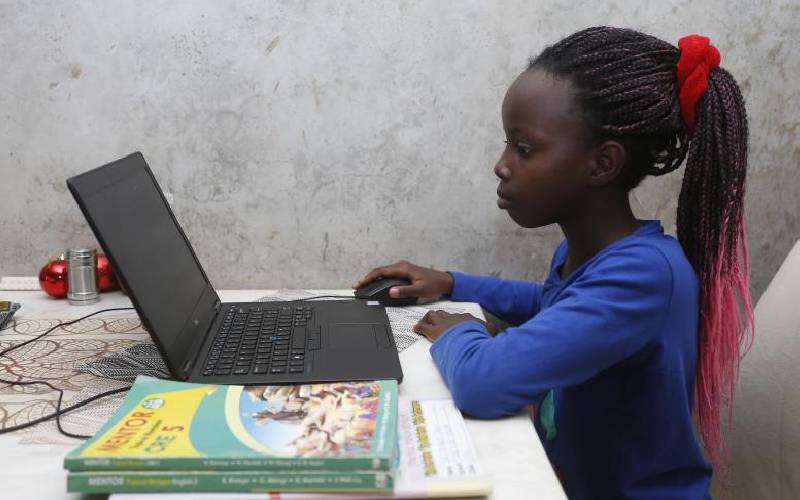×
The Standard e-Paper
Join Thousands Daily

Hope Namayian, a Standard Five pupil at Hillside Primary School doing her homework online at home. The schools were closed to contain the spread of Covid-19. [File, Standard]
The possibility of re-opening schools in September appeared slim yesterday even as the government gave an assurance that it was putting measures in place to ensure this was done as soon as possible.